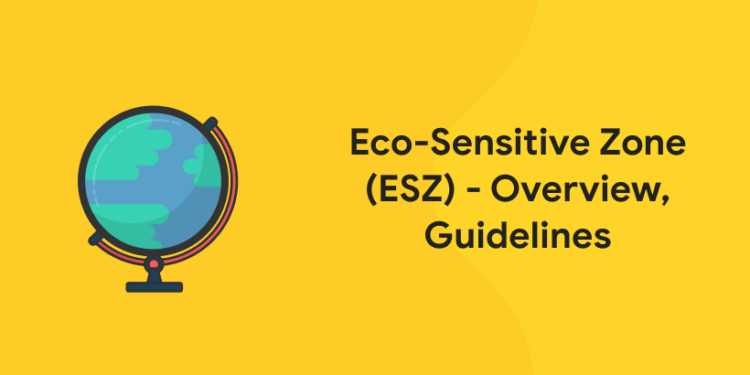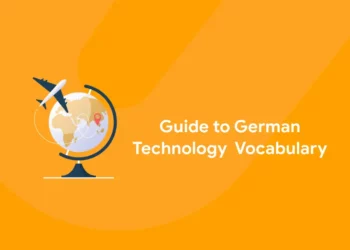Table of Contents
Eco-Sensitive Zones or Ecologically Fragile Areas are areas within 10 kms around Protected Areas, National Parks and Wildlife Sanctuaries. In India, these areas are notified by the Ministry of Environment, Forests and Climate Change (MoEFCC). The new ESZ guidelines, declared by the ministry on February 9, 2011 states that eco- sensitive zones would create some kind of “shock absorbers” to the protected areas by regulating and managing the activities around such areas. “The basic aim is to regulate certain activities around National Parks and Wildlife Sanctuaries so as to minimize the negative impacts of such activities on the fragile ecosystem encompassing the protected areas,” the Ministry said in its new guidelines.

Prepare for General Knowledge Exam! Download Entri App!
Eco-sensitive Zone (ESZ): Overview
- An ESZ could go up to 10 km around a protected area as provided in the Wildlife Conservation Strategy, 2002.
- In cases where sensitive corridors, connectivity and ecologically important patches, crucial for landscape linkage, are beyond 10 km width, these should be included in the ESZs.
- In context of a particular Protected Area, the distribution of an area of Eco Sensitive Zone and the extent of regulation may not be uniform all around and it could be of variable width and extent.
- They act as a transition zone from areas of high protection to areas involving lesser protection.
- These zones minimize forest depletion and man- animal conflict. The local area communities are also protected and benefitted.
- ESZs help in in-situ conservation, which deals with conservation of an endangered species in its natural habitat, for example the conservation of the One-horned Rhino of Kaziranga National Park, Assam.
Attempt Free Mock Tests for General Knowledge! Download Entri App!
Regulation of Activities in Eco-sensitive Zone (ESZ)
1: Who was the first woman President of India?
- Several activities like commercial mining, stone quarrying, crushing units, setting up industries that cause pollution, establishment of hydro-electric projects, commercial use of firewood, solid waste disposal or wastewater disposal etc. are prohibited or banned around ESZ.
- Felling of trees, establishment of hotels and resorts, commercial use of natural water, erection of electrical cables, drastic change of agriculture system, e.g. adoption of heavy technology, pesticides, widening of roads etc. can be done in ESZ with some regulations.
- Agricultural or horticultural practices, rainwater harvesting, organic farming, use of renewable energy sources, adoption of green technology for all activities etc. can be done in eco sensitive zones.
Grab Latest General Knowledge Materials! Register Here!
Eco-Sensitive Zone Committee
A meeting of the Expert Committee for declaration of Eco-Sensitive Zones around wildlife sanctuaries/ national Parks was held in the Ministry on 4th February, 2016 under the chairmanship of Shri Hem Pande, Special Secretary. The proposals for finalization of draft Eco-Sensitive Zone (ESZ) notifications were taken up for discussion during the meeting. Proposals regarding prohibited and regulated activities were also discussed.
Steps taken to Protect Eco- Sensitive Zones
- The basic aim of the Ministry is to regulate certain activities around the Protected Areas in order to minimize the negative impacts of activities that affect the fragile ecosystem. The concerned Range Officers should take stock of type of activities, types and number of industries operating around the protected area etc.
- A small committee comprising the concerned Wildlife Warden, an official from Local Self Government and an official of the Revenue Department of the Concerned Area should be formed to suggest best methods for management of the eco – sensitive zones and broad based thematic activities to be included in the Master Plan for the region.
- The guidelines said activities including commercial mining, setting of saw mills and industries causing pollution, commercial use of firewood, major hydropower projects are prohibited in such areas.
- It also prohibits tourism activities like flying over protected areas in an aircraft or hot air balloon, and discharge of effluents and solid waste in natural water bodies or terrestrial areas.
The key point to clear an exam lies in methodical and planned preparation. If you are a candidate who wants to pursue your dream career and looking for a good start, Entri App has got it covered for you. Entri App provides a great online platform for all those aspiring to appear for various bank exams, government exams and other competitive exams. Our team of experts provide short and precise video classes which helps in learning the concepts. Users get access to flash cards and quizzes and can attempt unlimited mock exams with the same pattern as that of the real exams. We also provide PDFs of previous years’ question papers with solutions.
Attempt Free Mock Tests for General Knowledge! Download Entri App!











